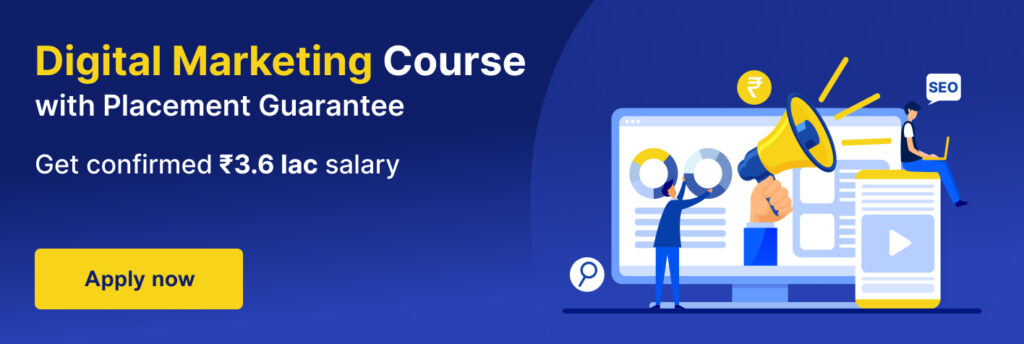What is Off-Page SEO – Checklist, Techniques, & Types
Did you know that Google uses over 200 algorithms to rank websites? One such activity that helps the website rank is off-page SEO.
Off-page SEO refers to techniques used in digital marketing to increase the visibility of a website or webpage in search engine results. This type of SEO includes activities such as link building, social media promotion, and local SEO. Through these activities, off-page strategies help to build relationships with relevant websites and generate more traffic for a website.
What is Off-Page SEO?
It is a set of activities done outside the boundaries of your website to help improve its overall visibility and rankings in search engine results pages. It includes link building, social media marketing, article and guest posting, influencer marketing, and forum engagement, among other tactics that contribute to increasing brand awareness and authority. These activities are important as they can help boost search engine rankings and generate quality traffic to the website, thus improving visibility for potential customers or clients. Additionally, off-page SEO helps establish relationships with other websites, which can be beneficial for both parties. To learn more about off-page SEO meaning, you can pursue a professional digital marketing course.
Techniques to Improve Off-Page SEO
Following are some techniques to improve Off-page SEO:
1. Link Building
Link building is an important part of off-page SEO and involves the creation of backlinks from other websites to yours.
- This helps increase your website’s visibility in search engine results pages which makes it easier for potential customers or clients to find you and establishes trust with both search engines and users.
- Link building can be done through various activities such as content marketing, guest blogging, directory submissions, press releases, etc.
- Additionally, link building also has the advantage of increasing the amount of quality traffic that visits your website, which could potentially lead to conversions over time.
2. Social Media Marketing
Social media marketing is another essential component of off-page SEO strategies.
- It allows businesses to directly engage with their target audience while providing valuable insights about their needs and preferences to optimize content accordingly on their sites.
- Social media platforms like Facebook, Twitter, or Instagram are especially useful for generating brand awareness by sharing relevant news updates or promotions related to products or services.
- Social media offers a great opportunity for interacting with influencers who have large followings within certain industries, thus allowing companies to gain access to new markets that may not have been previously visible organically via search engine queries alone.
3. Article Writing
Article writing is yet another powerful tool when it comes to optimizing off-page SEO strategies.
- It provides many advantages such as increased visibility due to high-quality content being posted regularly on various directories.
- It leads to improved reputation due to enhanced customer confidence resulting from informative articles; higher ranking in SERPs due to keyword optimization; and generating quality incoming links from authoritative sources, among other benefits associated with article writing activities undertaken systematically over a period of time.
4. Guest Posting
Guest posting is also gaining popularity among online marketers looking for effective ways to improve their off-page SEO tactics.
- This technique allows brands to gain access to new audiences within different industry sectors who may not have otherwise come across them organically via search engine queries alone.
- By incorporating SEO keywords into posts written specifically targeting these groups, either through blogs hosted externally on third-party websites or forums, companies can drive traffic to their platform.
Explore the best digital marketing placement guarantee course to excel in all the concepts of digital marketing.
Off-Page SEO Checklist
Following is an off-page SEO checklist you can follow to improve the website’s ranking.
- Backlink Audit: Analyze your backlink profile frequently to spot and remove spammy or low-quality links.
- Backlink Profile: Create backlinks from authoritative websites that are related to your industry. A number of techniques, including guest blogging, listing your website in directories, and participating in online forums, can be used to increase the number of backlinks to your website.
- Social Media: Engage your audience by posting content on well-known social media sites. Create and keep an active presence on the appropriate social media channels.
- Bookmarking: To boost visibility and drive traffic, add the pages of your website to renowned social bookmarking platforms.
- Online Reviews: Encourage happy consumers to provide positive reviews on sites like GoogleMyBusiness.
Off-Page SEO Factors
Some of the off-page factors affect the ranking of a website on the SERP. Let’s have a look at some of them.
- Backlinks: A website’s ranking factors heavily depend on the quantity and caliber of backlinks pointing to it.
- Domain Authority: The overall authority of a website is based on elements such as backlink profile, domain age, and content quality.
- Anchor Text: The backlinks referring to your website’s anchor text are also crucial. The language that links to your website is known as an “anchor text.” The more pertinent the anchor text is to the content of your website, the higher it will rank.
Types of Links for Off-Page SEO
Links are an important part of off-page SEO. The three types of important links include:
- Natural Links: These are links that are earned organically, without any direct outreach or promotion from you. They are considered to be the most valuable type of link because they are seen as a sign of trust and authority by search engines.
- Built Links: These are links that are created through outreach and promotion. They can be built by guest blogging, submitting your website to directories, and participating in online forums.
- Created Links: These are links that are created for your website from self-submissions on directories, forums, or press releases. They are not as valuable as natural or built links, but they can still help to improve your website’s ranking.


Difference Between Off-Page SEO and On-Page SEO
Let’s have a look at the difference between on-page and off-page SEO.
| On-Page | Off-Page |
| Optimizes the on-page website elements and content. | These are activities that are done outside the website. |
| It includes keyword optimization, meta tags, and headings. | It includes link building, social media marketing, and guest blogging. |
| Improves the visibility of the website. | Boost the credibility and authority of the website. |
| Affects the website’s ranking directly. | Affects the website’s ranking indirectly. |
| It is primarily done on the website. | It is primarily done on external platforms and websites. |
| Its main focus is to improve the website content and structure. | Its main focus is to build authority and online presence. |
Conclusion
In conclusion, Off-Page SEO is an effective way to increase the visibility of a website or blog post by using targeted keywords and images, engaging with followers on social media platforms, and building relationships with other websites.







